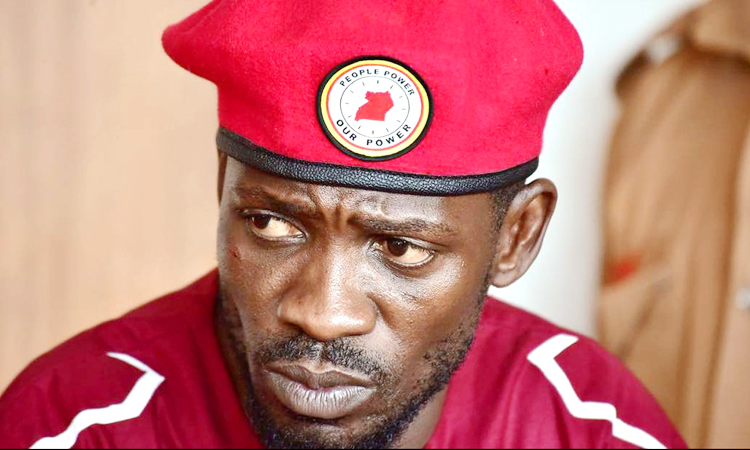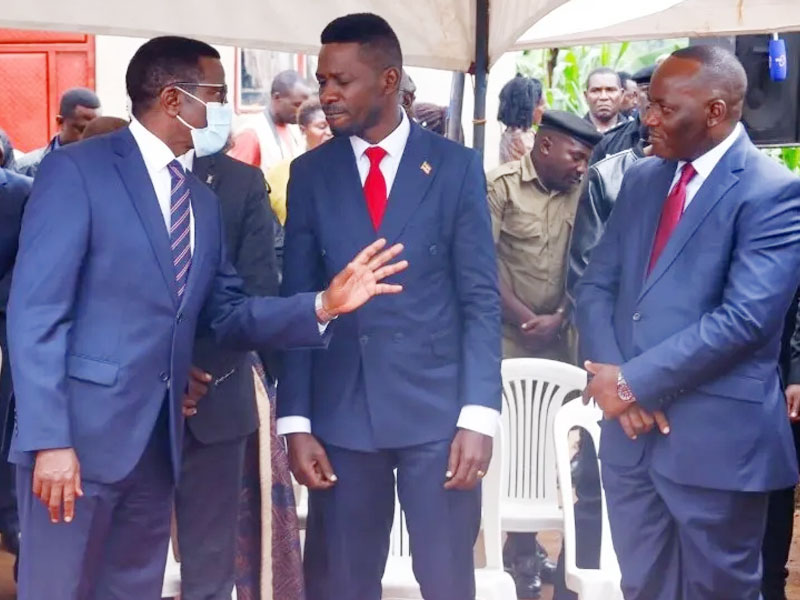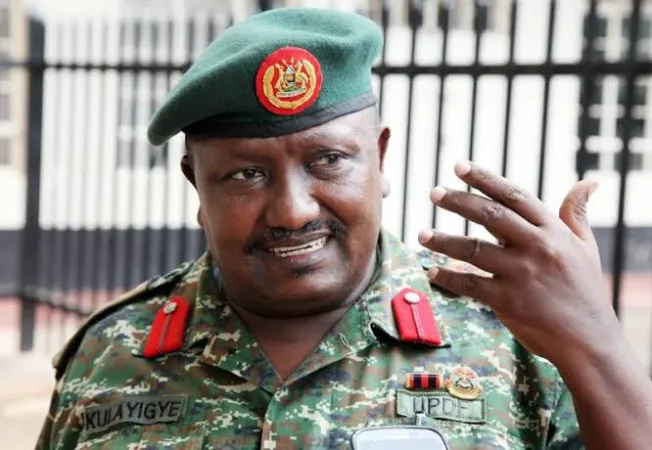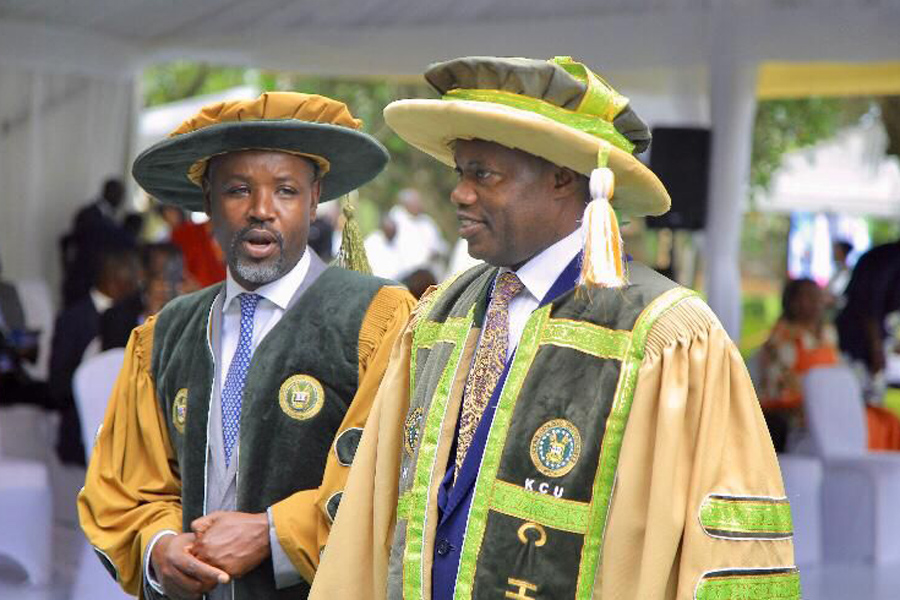These happenings and decisions shaped 2018
Keep Reading
The year
2018 saw a number of decisions and events that left a land mark impact on the
country and the Nile Post looks at them.
Kayihura sacking, charging in army
court
On the night
of March 4, the unexpected happened when President Museveni who is also the
commander in chief sacked then Inspector General of Police, Gen.Kale Kayihura
and replaced him with his then deputy Martin Okoth Ochola.
This brought to an end, the 12 year
tenure of Kayihura, a self-confessed ruling NRM party cadre who had also been the
longest serving police chief.
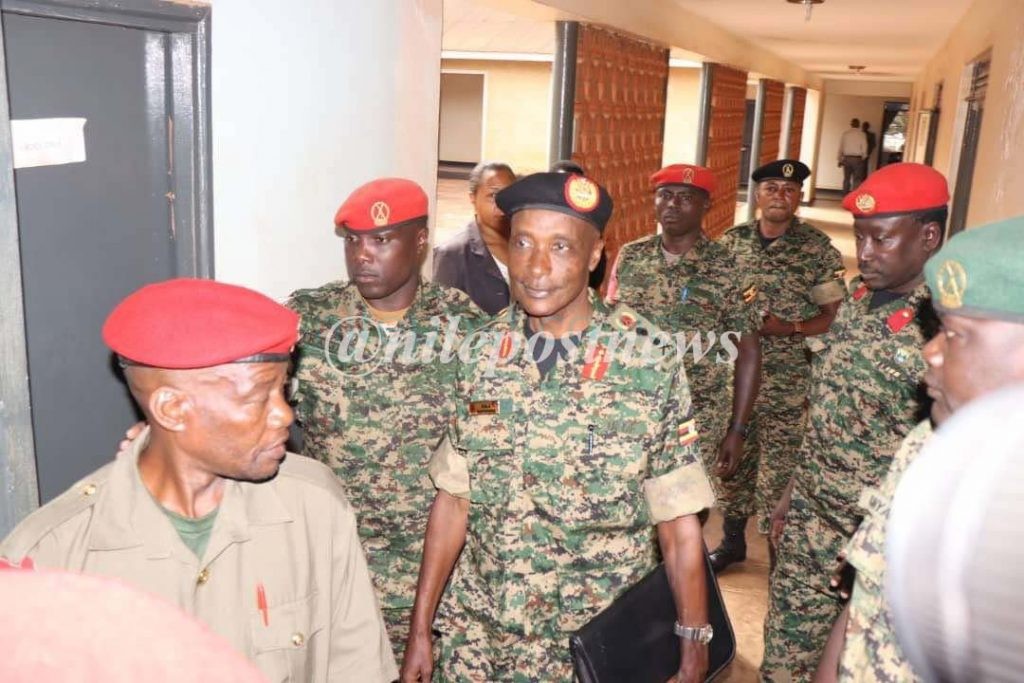
The subsequent
happenings indicated a growing rift between Kayihura and his boss when the
former was eventually arrested from his country home
at Katebe village, Kashagama sub-county Lyantonde district and detained
at Makindye military barracks where he spent close to three months before being
arraigned in the General Court Martial.
Appearing
before the army court, the former police chief was charged with aiding and abetting
the kidnapping and subsequent repatriation of Rwandan exile and refugees and
Ugandan citizens to Rwanda between 2012 and 2016.
He was also accused of failing to protect war
material when he issued arms to unauthorised persons including Boda Boda 2010
members led by Abdallah Kitatta.
He was later released on bail.
Army
arrests senior police officers
Following Kayihura’s arrest and subsequent incarceration,
a number of his cronies cum senior police officers were also arrested and
detained at Makindye military barracks by the army.
Among those arrested
and detained by the army included the former cyber-crime head
Richard Ndaboine, former crime intelligence director Col Ndahura Atwooki, the
former Flying Squad commander Herbert Muhangi, former Professional Standards
Unit Commander Good Mwesigwa and Lt Col Peter Musherure, the former deputy
police director of crime intelligence among others.
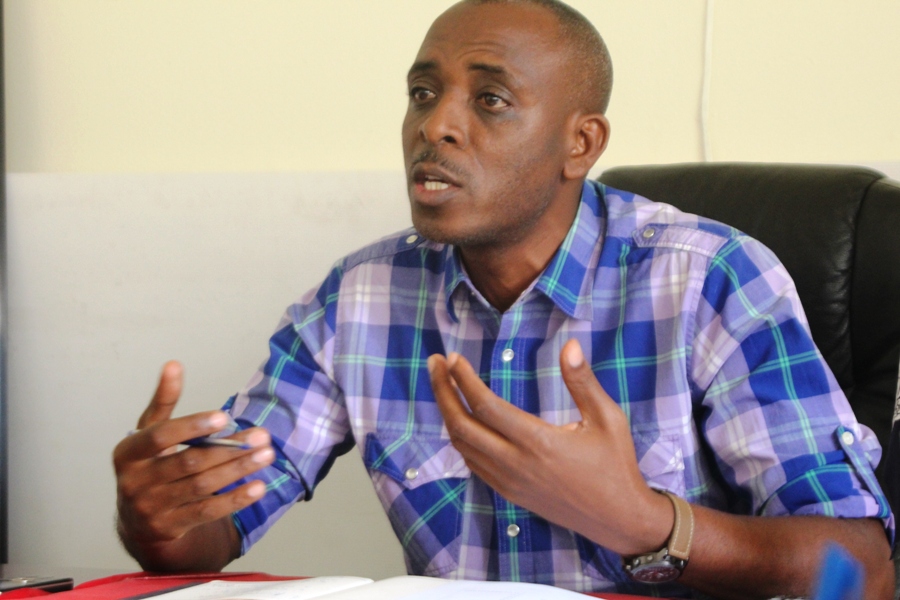
These have up to now
never been arraigned in court to be charged of any offence but the army is
tightlipped about their fate.
Boda Boda 2010’s Kitatta
Early in 2018, the fate
of notorious group, Boda Boda 2010 led by one Abdalla Kitatta was sealed.
On January 22, Kitatta
together with other members of his Boda Boda 2010 group were arrested by the
army before being detained at Makindye military barracks.
Meanwhile, the following
days saw the army raiding several Boda Boda 2010 offices around Kampala and
arrested more group members and seizing a number of the property found in their
offices.

The last stroke in the
group’s back was the invasion of their offices by other groups of boda boda
riders before setting them ablaze.
Kitatta was later
charged together with 12 other Boda boda 2010 members of charges related
to unlawful possession of arms, ammunitions and military equipment including
caps and uniforms.
Suzan Magara murder
On February 7, little
known Suzan Magara, 28, a cashier for Bwendo Dairy Farm in Hoima was
kidnapped in Mengo as she left work to drive home in Lungujja by unknown
assailants and kept for over three weeks.
Efforts by security agencies
together with her family to trace her whereabouts proved futile and despite giving
them a shs700 million ransom, the kidnappers later killed Magara before the
body was found dumped in a bush along the Entebbe- Kampala expressway.
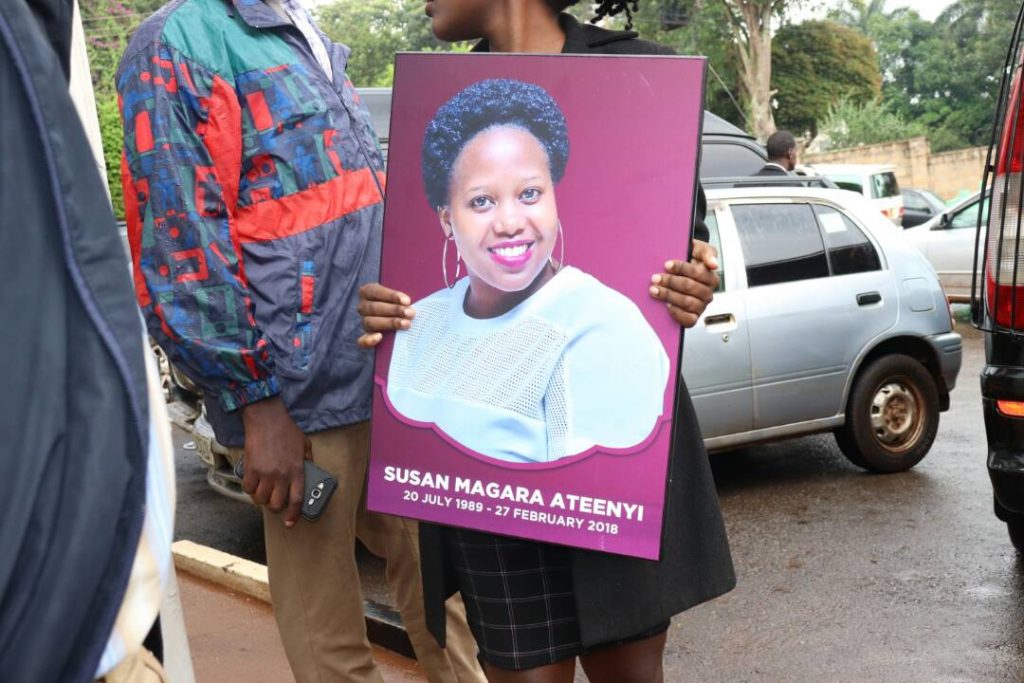
A number of people were
later arrested before being slapped with kidnap and murder charges by the
Buganda Chief Magistrates Court.
Following Magara’s kidnap,
there were a number of subsequent kidnaps and murders in various parts of the
country targeting especially women.
Arua chaos
On August 13 as the
Arua Municipality by-election campaigns to replace slain MP Col.Ibrahim Abiriga
were being concluded, something unusual happened.
The presidential convoy
was allegedly pelted with stones by independent candidate Kassiano Wadri’s
supporters prompting the arrest of a number of people including Bobi Wine,
Wadri, Paul Mwiru, Gerald Karuhanga , Francis Zzaake and many others.
The following days saw
photos depicting the arrested people especially Bobi Wine and Zzaake badly tortured
during the arrest.
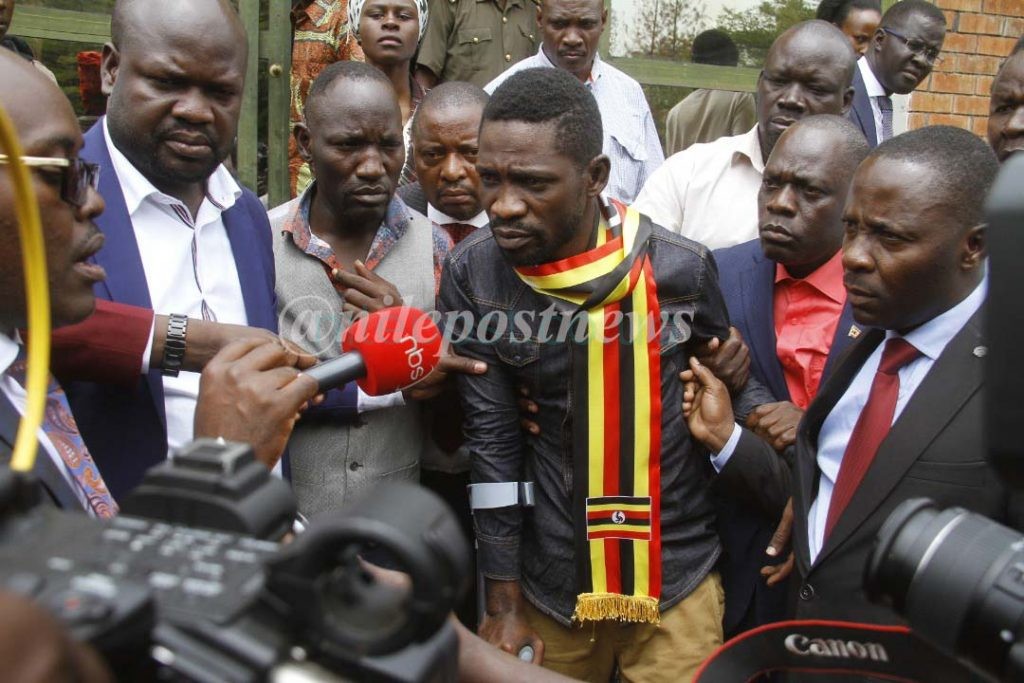
Meanwhile, various
parts of the country led by Kampala and Mityana erupted into riots that saw the
army move in to quell them.
The chaos saw a number
of people arrested whereas others were injured as security tried to calm the
situation in various parts of the country.
Muntu quits FDC
On September 25, former
Forum for Democratic Change president Maj.Gen.Mugisha Muntu announced he was
leaving the party he had partly founded.
“We have resolved to
leave the party. As already explained, we do not do so in anger or animosity
towards the current leadership, but in careful consideration of the national
cause of liberating our country. The current party leadership needs to be given
the opportunity to pursue their agenda untethered by the constant worry of
sabotage or suspicion,”Muntu said in a statement.
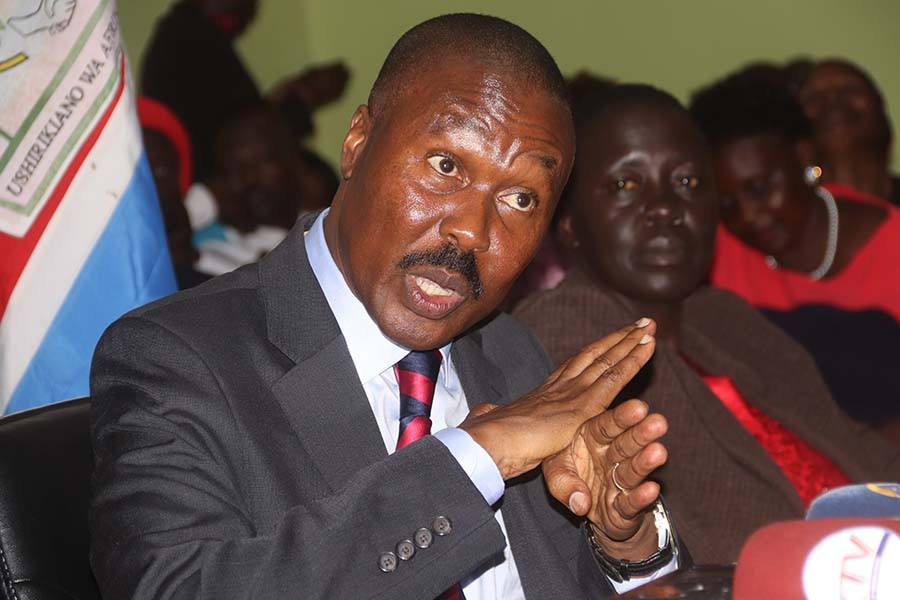
He later announced he
would form what he termed as the ‘New Formation’ that he said would rally
Ugandans to cause regime change in the country.
Age Limit ruling
In July, the
Constitutional Court sitting in Mbale delivered its ruling on the age limit petition
in which it upheld the amendment of article 102(b) to lift the minimum and
maximum age limit from the constitution.
Parliament had the
previous year passed the controversial age limit bill to lift the cap on the
presidential and district chairperson age limit from the constitution after a
total of 317 MPs voted in favour of the motion whereas 97 were against it.
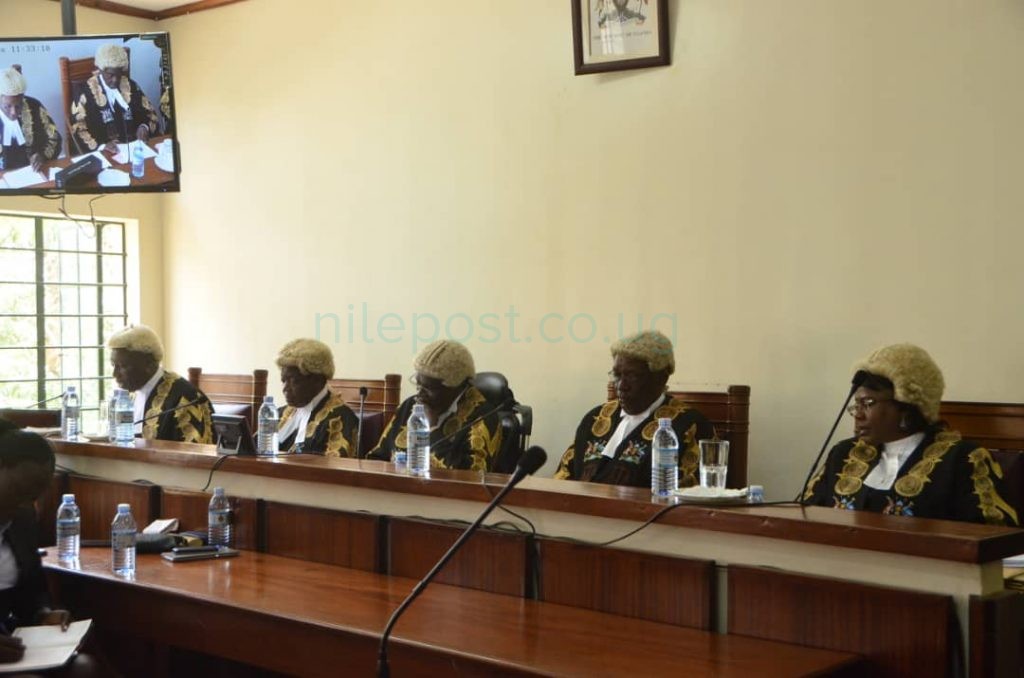
A group of five people
including; the Uganda Law Society (ULS), lawyer Male Kiwanuka Mabirizi, six
opposition MPs led by the Leader of Opposition in Parliament, Winnie Kiiza,
Prosper Businge, Dr. Abed Bwanika and Jonathan Abaine Buregyeya would later petition
the Constitutional Court challenging the passing of the age limit bill into law
saying it contravened the constitution.
In a 4:1 judgment, the
judges of the Constitutional Court said the age limit amendment was passed in
compliance with the constitution.
“Court declares removal
of age limit for president and LC5 are valid and passed,” ruled the Deputy
Chief Justice Alphonse Owiny- Dollo.
Mobile money tax
In May, the
Ugandan parliament approved the Excise Duty Bill that approved government’s
proposed 1% tax on mobile money transactions.
The percentage
was later reduced from one to 0.5 but the move to pass the bill attracted a lot
of backlash from members of the public with many condemning it for being
introduced to put several transaction agents out of
business because customers would abandon the popular and convenient
payment method.
The number of mobile money transactions
later reduced as people feared to pay extra charges or their money being
deducted in the name of taxes.
Social Media tax
In the same month, parliament also passed
the Excise Duty Bill that approved government’s proposal to levy a shs200 per
day for the use of social media platforms including facebook, whats app and
twitter among others.
A
group of Ugandans led by one Daniel Opio would later sue the Uganda
Communications Commission (UCC) accusing it of unfairly giving an enabling
environment for Uganda Revenue Authority (URA) to collect the social media tax and
the Attorney General (AG) seeking answers as to why government does not offer
free internet services to its citizens.
Meanwhile,
passing of the bill forced a number of Ugandans to resort to Virtual Private
Network (VPN), a technology that creates a safe and encrypted connection over a
less secure network, such as the internet.
Ban old vehicles
Parliament in May also
passed the Traffic and Road Safety (Amendment) Bill, 2018 that among
others effected a ban on the importation of vehicles that are 15 years old or
more from their date of manufacture.
The bill
that came into effect on July 1
meant that anyone who imports a vehicle which is 15 years old or more from the
date of manufacture pays an environmental levy for the vehicle charged by
Uganda Revenue Authority before being cleared to enter the country.
Passing of the bill also saw the increase in the registration
fees for vehicle entering the country whereas an environment fee was introduced
on vehicles which are five years old but do not exceed eight years from the
date of manufacture.
Passing of
the bill meant that the cost of importing and finally buying of vehicles,
especially the second hand ones which are most sought for by Ugandans had
increased.



